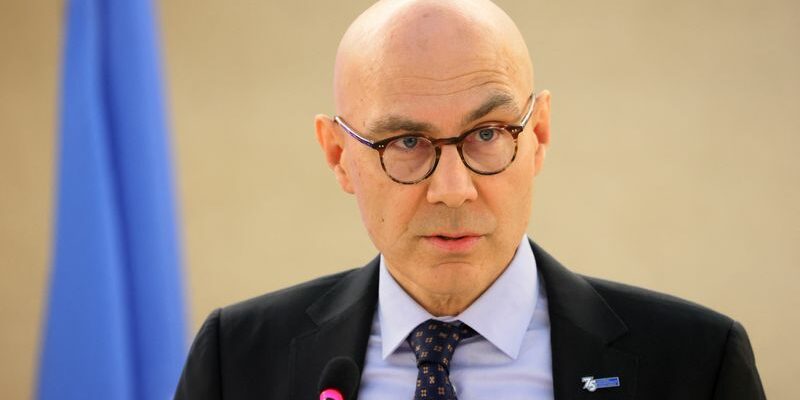GENEVA (Reuters) – United Nations (UN) High Commissioner for Human Rights Volker Türk in a speech on Tuesday criticized restrictions on the freedom of civil society, particularly in China and Russia.
This first major general speech before the Human Rights Council, based in Geneva, was eagerly awaited by diplomats and human rights groups, who wanted to know its priorities.
The Austrian official said his main message to governments was to listen to citizens, victims and human rights defenders.
“The severe restriction of civic space is the Achilles’ heel, the fatal weakness, of governance,” he said, citing incidents in China including the “arbitrary detention” of opponents of the regime and Uyghurs in Xinjiang, and in Russia with the closure of independent media.
The High Commissioner began his speech by referring to the “shocking magnitude” of the impact of the war in Ukraine, which will undermine the rights of Ukrainians “for generations to come”.
He went on to condemn the Malian army for “serious violations”, stressing the need to maintain independent monitoring of the situation in Ethiopia, after Reuters reported in 2021 that Addis Ababa was seeking to end an investigation by the government. on alleged war crimes in Tigray.
Volker Türk also took on some Western states by citing US police violence against people of color and a possible record drop in living standards in Britain.
The director of the German think tank Konrad Adenauer Foundation in Geneva, Olaf Wientzek, described the speech as a “balancing exercise” aimed at raising important issues for different regional groups.
The former director of the organization Human Rights Watch, Kenneth Roth, remained unsatisfied, declaring to Reuters that Volker Türk offered only “discreet diplomacy”.
(Report by Emma Farge, French version Dina Kartit, edited by Kate Entringer)
©2023 Thomson Reuters, all rights reserved. Reuters content is the intellectual property of Thomson Reuters or its third party content providers. Any copying, republication or redistribution of Reuters content, including by framing or similar means, is expressly prohibited without the prior written consent of Thomson Reuters. Thomson Reuters shall not be liable for any errors or delays in content, or for any actions taken in reliance thereon. “Reuters” and the Reuters Logo are trademarks of Thomson Reuters and its affiliated companies.
